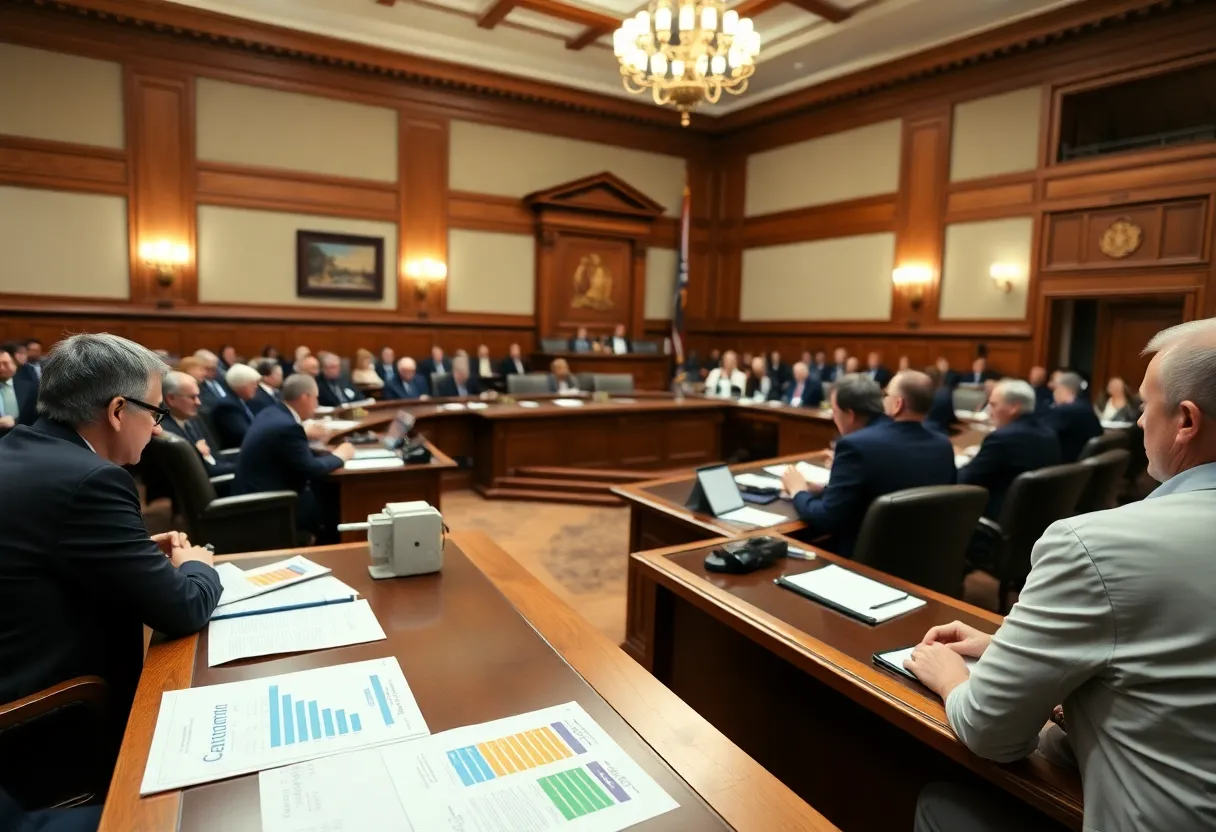

Texas Legislature Discussing Health Care
As the 89th Texas Legislature progresses, lawmakers are confronting vital health care challenges including medical cannabis legislation and Medicaid expansion. Governor Greg Abbott’s focus on school choice vouchers coincides with pressing health care policies, notably Senate Bill 8, which restricts abortions and its connection to infant mortality rates. Additionally, the need for Medicaid expansion remains a hot topic, with calls for greater transparency in health care costs and innovative developments in the health sector. This legislative session promises significant discussions around these crucial health care matters.
As the 89th Texas Legislature is in full swing, lawmakers have turned their attention to a variety of critical health care issues. From how Texas handles medical cannabis to the pressing matter of Medicaid expansion, this legislative session is shaping up to be quite the roller coaster ride!
While Governor Greg Abbott is prioritizing school choice vouchers this session, the focus has also shifted to essential health care policies. This comes on the heels of the enacted Senate Bill 8, which restricts abortions once cardiac activity is detected. It’s a hot-button issue that’s sparked plenty of discussions around the state’s health policies.
In an interesting twist, a recent analysis from Johns Hopkins University has drawn a stark connection between Senate Bill 8 and a troubling 12.7% increase in infant deaths across Texas between March and December 2022. In response to the growing concerns, Representative Penny Morales Shaw is stepping up to propose a bill that expands eligibility exceptions for abortions under the current law.
Medicaid expansion is another hot topic this session, with Texas standing as one of only ten states that haven’t expanded Medicaid under the Affordable Care Act as we approach 2024. Advocates believe that if Texas decided to expand Medicaid, over 1 million low-income Texans, especially those without children, could finally qualify for coverage.
However, a report from Texas 2036 argues that while Medicaid expansion might sound beneficial, it wouldn’t significantly impact the currently uninsured population, many of whom can already sign up for Affordable Care Act plans. Not one to sit on the sidelines, Senator Borris L. Miles has submitted a bill envisioning a “Texas solution” for low-income health benefit plans, contingent on federal block grants.
Moreover, there are multiple proposals floating around to broaden Medicaid eligibility criteria, including efforts to extend these benefits to pregnant women. It seems there’s no shortage of ideas about how to enhance health care access.
Meanwhile, the push for greater transparency in health care costs continues to grow stronger. Representative Hillary Hickland has crafted a bill requiring health care facilities to provide itemized bills within 24 hours of a request, ensuring that patients know exactly what they are paying for. What’s more, medical facilities can’t exceed the given price estimate by more than 5%—a measure designed to bring peace of mind to Texans facing unexpected bills.
On a related note, there’s a strong demand from employer groups for clearer health care cost transparency in light of the federal No Surprises Act. Adding to the mix, Representative Brian Harrison has submitted a bill urging hospitals to notify the Texas Attorney General concerning any acquisition of outpatient facilities. His proposal includes measures to enforce equal Medicaid reimbursement rates for both hospital-owned and physician-owned facilities.
As the session goes on, a slew of bills aiming to legalize both medical and recreational cannabis are gaining traction, with support from lawmakers like Morales Shaw and Jon Rosenthal. However, Lt. Governor Dan Patrick is pushing back, seeking to ban THC while slamming the door on unregulated products that emerged following the 2019 hemp legislation. The state currently has over 7,000 registered consumable hemp retail locations, yet only three licensed medical marijuana dispensaries have hit the market.
In more positive news, companies in Texas are making strides in health care innovation. For example, Access Healthcare recently landed a big investment to boost its AI capabilities, while Medical City has launched five robotic surgical systems across Dallas hospitals, paving the way for minimally invasive surgeries.
Meanwhile, Texas Health Resources is making headlines by purchasing land for a new hospital site in the rapidly growing community of Celina. This development is sure to be a welcome addition for locals as they navigate their health care options.
With changes on the horizon in Texas health care policies, residents can certainly expect engaging discussions ahead. From Medicaid expansion to cannabis, it looks like this legislative session is far from boring!
News Summary Manor, Texas is thrilled as H-E-B has begun construction on its first store…
News Summary The luxury real estate market in Dallas is experiencing notable shifts, with a…
News Summary The Bexar County Sheriff’s Office is requesting public assistance to identify two suspects…
News Summary The 2025 Fiesta Pooch Parade in Alamo Heights brought together over 1,000 dogs…
News Summary San Antonio restaurants and bars are preparing for special deals and events to…
News Summary A violent confrontation outside The Stout House bar in San Antonio led to…